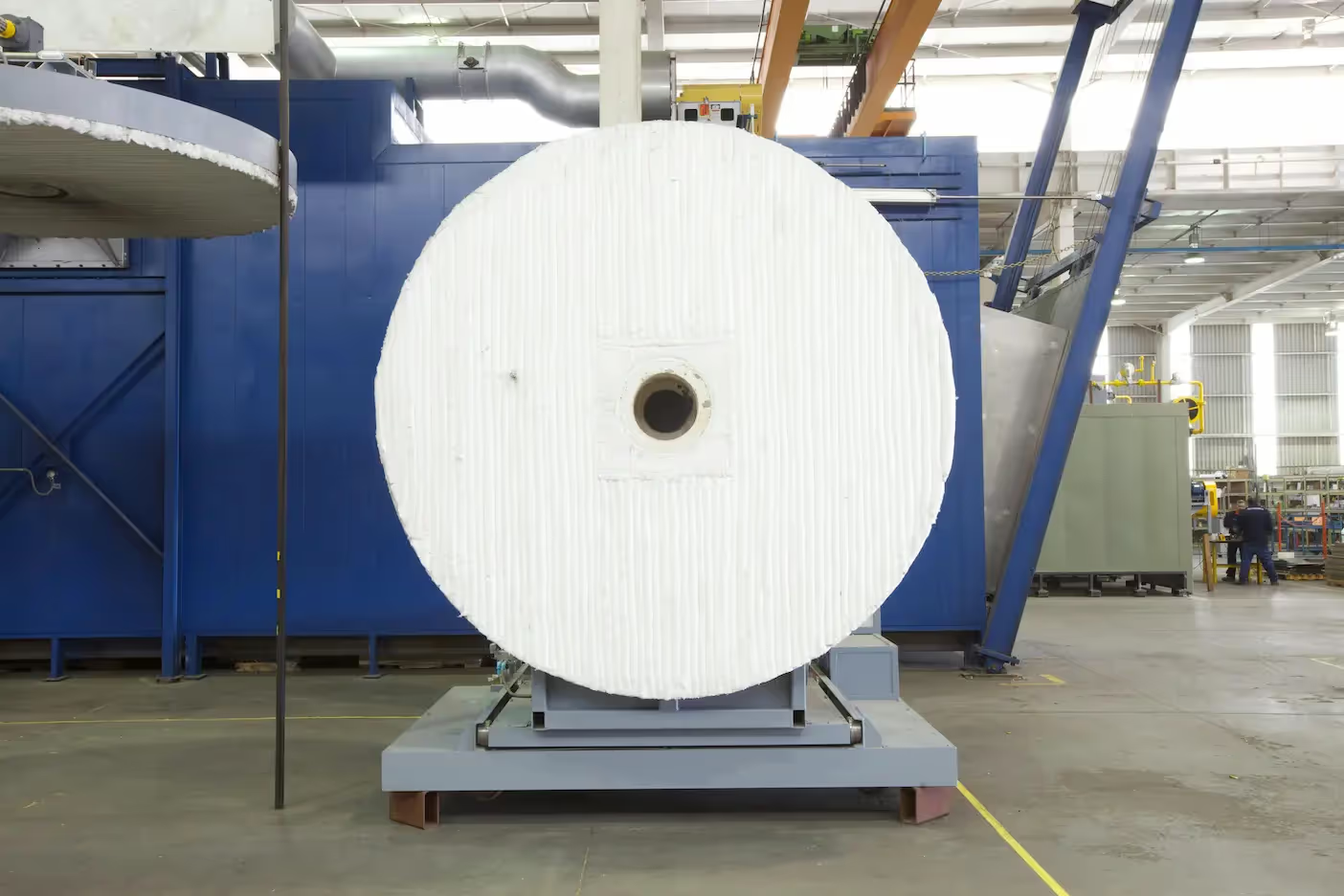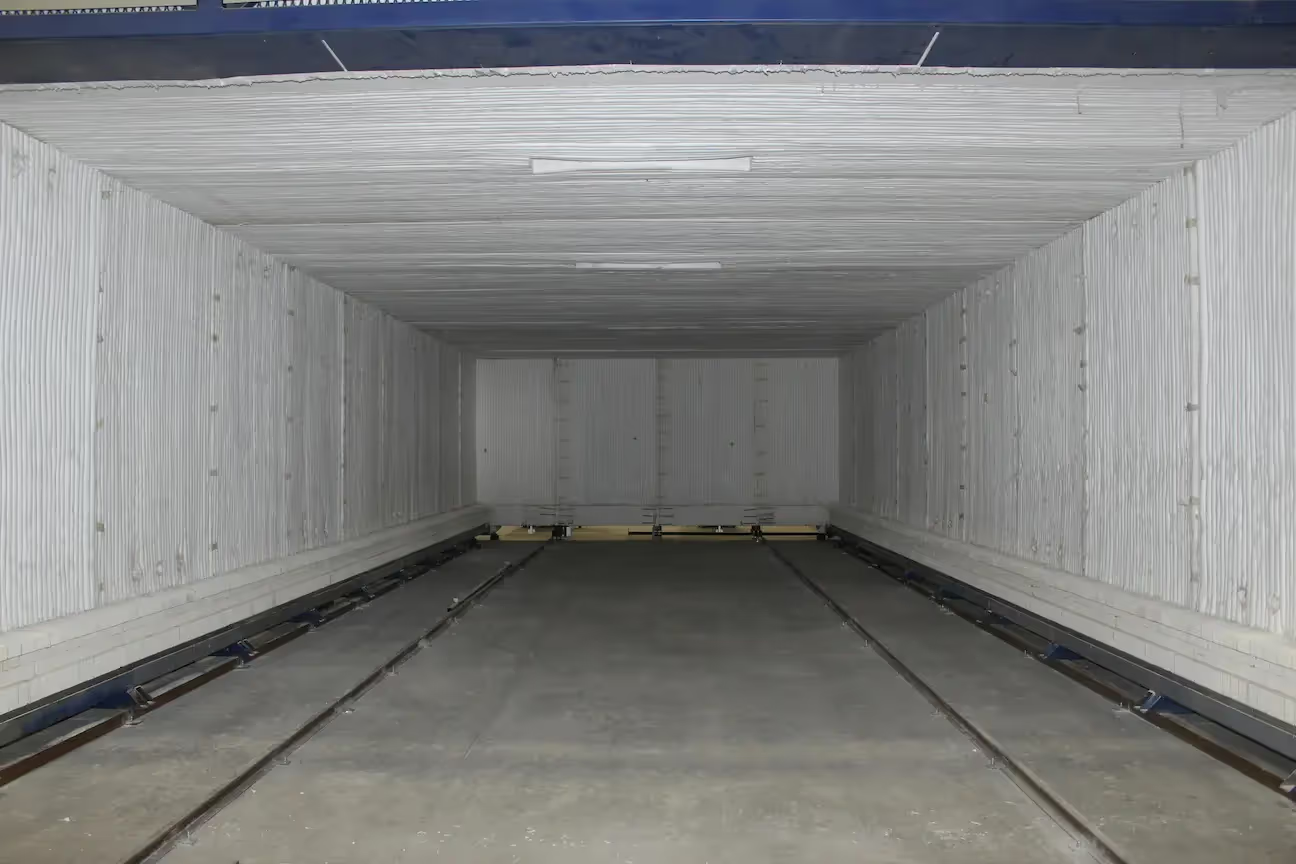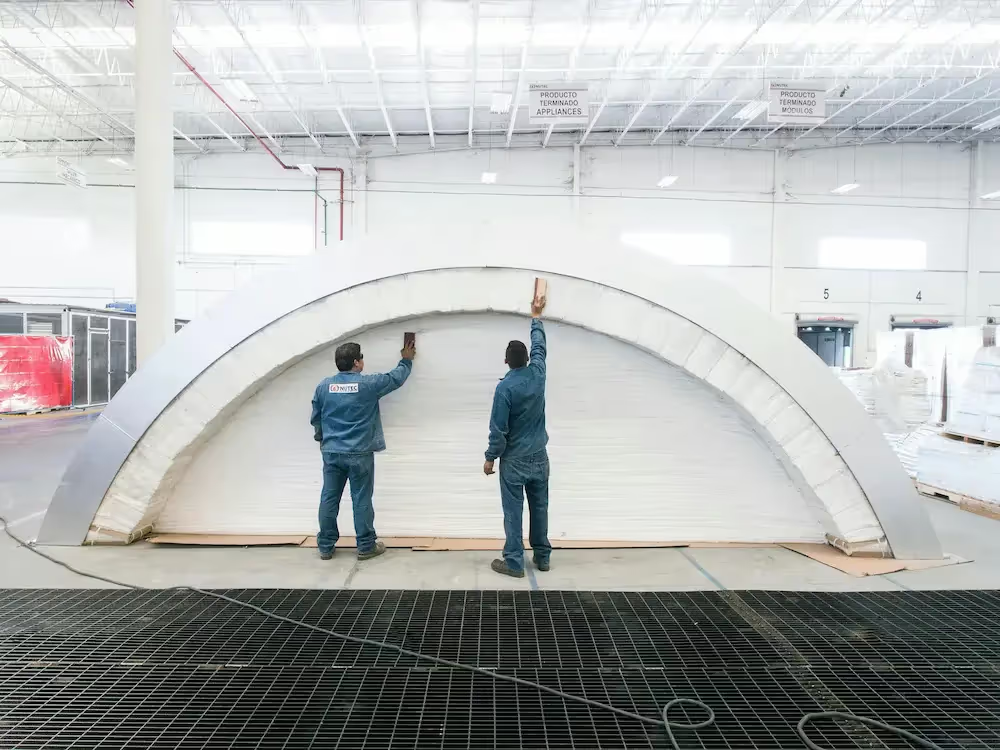
English (Global)
Article
Ceramic Fiber MacroModules: Applications in the Industrial Sector
Explore how ceramic fiber MacroModules enhance thermal efficiency in high-temperature industries, emphasizing their thermal shock and durability resistance.
By Dámaso Ortiz Margáin
Commercial Director Mexico & LATAM - NUTEC
In the industrial sector, where high-temperature production processes predominate, thermal efficiency and heat management are crucial for optimizing process performance and sustainability.
Traditional insulation materials have served their purpose, but for those demanding maximum performance and efficiency, low thermal mass, and superior resistance to thermal shock, ceramic fiber-based insulation, including so-called MacroModules have emerged as the superior option due to their thermal efficiency, light weight, ease of installation, excellent thermal shock resistance, flexibility, service life, safety, and environmental friendliness, among others.
In this article, we want to highlight the key applications and benefits of ceramic fiber MacroModules when used in your industrial processes. We will delve into why ceramic fiber modules have revolutionized high-temperature insulation.
What are Ceramic Fiber MacroModules?
While ceramic fiber modules generally refer to prefabricated units of various sizes, there is a specific category for large-scale applications: MacroModules. Manufactured with the same high-temperature blanket, these modules offer the advantage of positioning the anchorage almost at the cold face.
Ceramic Fiber MacroModules are custom-made monolithic prefabricated panels that provide efficient and cost-effective thermal insulation for various industrial applications. They are characterized by the ability to reach high operating temperatures of up to 3000°F (1650°C) depending on the type of fiber used to construct them, and their ability to maintain stable temperatures inside industrial equipment.
What are the key properties of Ceramic Fiber MacroModules?
Ceramic Fiber MacroModules have properties that make them ideal for industries that handle high temperatures in their processes. Some of these properties are:
- Low thermal conductivity: Ceramic fibers possess exceptionally low thermal conductivity, significantly reducing heat transfer. In the context of a furnace, ceramic fiber retains heat inside, significantly reducing energy consumption and generating real energy cost savings.
- Lightweight construction: Unlike refractory bricks and refractory concretes, traditional insulation materials that can be difficult to handle, ceramic fiber MacroModules are incredibly lightweight. This facilitates their handling and installation, reducing labor costs and accelerating the process.
- Quick response: Ceramic fiber is the ideal solution if you need to rapidly increase temperatures inside the furnace. Thanks to their low thermal mass, MacroModules heat up and cool down quickly, essential for applications requiring short heating cycles.
- Thermal shock resistance: Ceramic Fiber MacroModules exhibit impressive thermal shock resistance. Unlike traditional materials that can crack under rapid temperature changes, ceramic fibers easily handle these conditions, ensuring long-lasting performance.
- Flexibility: Not all furnaces are the same, and ceramic fiber MacroModules can adapt to various configurations. These modules can be easily cut and shaped to fit irregular spaces, providing a customized insulation solution for any application. Additionally, MacroModules allow for single-unit installations.
- Chemical resistance: In harsh industrial environments, chemical resistance is often required. Ceramic fibers are resistant to most chemicals, acids, and alkalis, making them a versatile and suitable option for various industrial environments.
- Vibration resistance: NUTEC MacroModules securely fasten each blanket fold to a supporting steel structure using a specific anchoring method. This ensures the highest possible anchor density and makes the product the most suitable for high-vibration applications.
The above properties allow MacroModules to minimize heat loss and improve energy efficiency in various industrial applications.
So, if you want to optimize your industrial processes with our ceramic fiber MacroModules, contact us today!

Applications of MacroModules in the industrial sector
Now that you understand the properties of MacroModules, let's explore their industrial applications, especially in sectors that require large-scale insulation. Some of these applications include:
- Steel ladle covers: Ladle covers in steelmaking are essential for maintaining optimal temperature, preventing oxidation of molten metal, and creating a controlled atmosphere within the crucible. By containing heat, protecting the metal from air contact, and allowing for safe material handling, covers ensure an efficient and safe manufacturing process, contributing to the production of high-quality steel. MacroModules offer the ideal insulation for this application, not only due to their thermal qualities but also because they are resistant to thermal shock, much lighter and easier to handle than covers made of dense refractory, and have a longer lifespan than traditional ceramic fiber modules, thanks to their innovative anchoring system to the structure.
- Steel ladle preheating stations: Preheating stations for ladles are essential for preparing containers holding molten metal. By preheating the ladles and tundishes, a uniform temperature is ensured, the risk of premature solidification of the metal is reduced, and the life of the ladle is extended. These stations made with MacroModules offer all these features, surpassing the performance of traditional systems.
- Tundish covers in continuous casting: In continuous steel casting, the tundish or distributor acts as an intermediate vessel that receives the molten steel from the furnace and stores, distributes, and homogenizes it before it flows to the casting system. Its main function is to ensure a continuous metal flow, even during ladle changes that feed the tundish. Tundish covers made of ceramic fiber MacroModules are widely used in the industry.
- Construction of heat treatment furnaces: MacroModules are used to line furnaces, especially heat treatment and drying furnaces, where start-stop cycles are essential and flexible temperature cycles and rapid cooling are required.
- Furnace doors: MacroModules offer a tight heat seal and thermal shock resistance for large furnace doors, reducing the overall weight of the door and facilitating operation.
- Duct insulation: MacroModules are used to insulate hot gas and fume ducts, reducing heat loss and protecting workers.
- Tunnel kilns, roller kilns, and dryers in the ceramic industry: These pieces of equipment, when manufactured with MacroModules, provide effective insulation that allows precise temperature control and uniform heat distribution, improving product quality and reducing energy consumption. In addition, the resistance to high temperatures and durability of MacroModules make them ideal for continuous and demanding production cycles.
We invite you to learn about our success story in the ceramic industry.

Additional benefits and competitive advantages of MacroModules
Implementing ceramic fiber MacroModules in industrial installations optimizes thermal efficiency and offers significant economic and safety advantages.
Some of the benefits we present are:
1. Energy Efficiency
MacroModules possess excellent insulating properties that minimize heat loss in high-temperature units. This translates into substantially better heat retention within the system, reducing the amount of energy required to maintain desired operating temperatures. By reducing fuel consumption, companies can experience a significant reduction in their energy costs.
2. Reduced Maintenance and Repairs
Due to their robustness and durability, MacroModules require less maintenance than other insulation materials. Their high resistance to thermal and mechanical degradation extends their lifespan, reducing the frequency of repairs and replacements. This decreases direct costs associated with maintenance and minimizes equipment downtime, improving overall productivity.
3. Faster and More Economical Installation
The size and design of MacroModules allows for faster and more efficient installation than smaller modules. Covering larger areas with fewer pieces reduces the time and labor required for installation. This not only accelerates the installation process but also reduces associated labor costs.
4. Improved Operational Safety
MacroModules contribute to a safer working environment. Their excellent resistance to high temperatures and ability to maintain structural integrity under extreme conditions reduce the risk of catastrophic failures in critical systems. Additionally, by minimizing heat leakage, MacroModules help maintain lower surface temperatures on the exterior of equipment, reducing the risk of burns and other thermal accidents for personnel.
5. Reduced Emissions
MacroModules also reduce greenhouse gas emissions and other pollutants by improving energy efficiency and decreasing fuel consumption. This has environmental benefits and can help companies comply with increasingly stringent environmental regulations, avoiding potential fines and penalties.
Optimize your industrial processes today. Contact us to discover how our thermal insulation solutions can revolutionize your operations.
Ceramic fiber Modules and MacroModules
What is the difference between Modules and MacroModules?
The key differences between modules and MacroModules are size and application. MacroModules, being much larger, are ideal for large-scale projects where rapid installation and maximum thermal efficiency are essential.
They are also ideal for large industrial furnaces, combustion chambers, and other large-scale installations requiring extensive insulation coverage.
Another difference is in relation to the connection between the pieces; MacroModules have fewer joints between pieces than modules. This means they can offer more uniform insulation and fewer points of potential thermal leakage.
In what applications are modules more suitable?
While we previously discussed the applications of MacroModules, it is also essential to understand where modules may be more appropriate.
Ceramic fiber modules are more suitable for applications requiring flexibility and where the surfaces to be covered are not extremely large. Some specific applications where modules are more feasible than MacroModules include:
- Small and medium-sized furnaces: In small to medium-sized industrial furnaces, modules are ideal due to their manageability and ease of installation in smaller spaces.
- Boilers and steam generators: Boilers and steam generators, which often have more complex shapes and varied sizes, benefit from using modules due to their ability to adapt to these configurations.
- Industrial process equipment: Process equipment that requires thermal insulation, such as reactors and small combustion chambers, can take advantage of the flexibility and adaptability of modules.
- Piping and ducting: Modules are ideal for insulating pipes and ducts, especially when they have curves, elbows, or changes in direction that require a flexible insulation material.
- Small laboratory or pilot furnaces: In laboratories or pilot plants, where smaller furnaces are used for research and development, modules offer the versatility needed for custom configurations.
Conclusion – High-temperature thermal insulation with NUTEC MacroModules
As you have read throughout this article, NUTEC MaxBlock ceramic fiber MacroModules represent a cutting-edge solution for industries seeking to improve their thermal efficiency and heat management. With applications across various sectors and a range of competitive advantages, these modules are poised to transform how companies handle their thermal insulation needs.
NUTEC, with its leadership and expertise, is committed to providing the best solutions for its customers, solidifying its position as a leader in industrial thermal insulation.
Let's work together. Contact us now to assist you with your next thermal insulation project.
Want to know more?
At NUTEC, we are committed to providing you with valuable content that helps you make informed decisions for your business. Thank you for taking the time to read this entry and we hope it provided you with insights that you can apply to your operations.
If you have any questions or would like to learn more about our products, please don’t hesitate to contact us.
To get in touch, simply fill out the form, and one of our experts will get back to you as soon as possible.
© NUTEC Incorporated 2026

